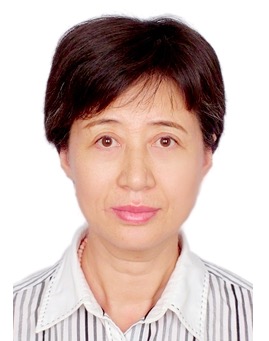Jing An

Biography
Jing graduated in Clinical Medicine from the Chinese Medical University, Shengyang, China in 1982. She obtained her PhD in Burn Surgery from the Third Military Medical University, Chongqing, China in 1989, and after that she worked in Burn Institute of Third Military Medical University as a lecturer (1989-1992) and an associate professor (1992-2000). From 1993 to 2000, she joined the Department of Microbiology and Immunology, Tokyo and Metropolitan Institute for Neuroscience, Fuchu-City, Tokyo, Japan as a research fellow. And since then, she started to focus on investigations related with Flavivirus. From 2000 to 2008, she worked in Department of Microbiology of Third Military Medical University as a professor and doctoral supervisor. And then, she joined in Department of Microbiology, basic medicine of Capital Medical University as director, professor and supervisor.
Research Focus
Dengue infection has become the most severe public health problem in endemic areas in recent decades. But the pathogenic mechanism and the immunity of dengue infection have not been completely defined, thus our laboratory mainly focuses on the investigations on the possible roles of herpes viruses on brain disorder and pathogenesis and the prevention of dengue virus, especially, we are interested in elucidating:
(1) The effect of herpes virus infection on occurrence and progression of brain disorder and the possible mechanism.
(2)The interaction of dengue virus and host cells: integrinβ3, small GTPase (Rac1) and microfilament were closely related with the virus entry and replication in the host cells, which might be promising target of antivirus drugs.
(3)Dengue and Japanese encephalitis DNA vaccine: We constructed a tetravalent dengue DNA vaccine, and evaluate the cellular immune response and humoral immune response companied with electroporation stimulation, which have showed relatively balanced immune reaction in mice. Moreover, our DNA vaccine against Japanese encephalitis could induce high titers neutralization antibody in big animals. In addition, we also invested the cross-protection induced by Japanese encephalitis vaccine to dengue infection, which might provide important information in terms of DENV prevention.
Representative publications in recent 5 years
1. Yan Xing, Yisong Wang, Shijie Wang, Xin Wang, Dongying Fan, Dabiao Zhou*, Jing An*, Human cytomegalovirus infection contributes to glioma disease progression via up-regulating endocan expression. Translation Research, 2016 online.
2. Jieqiong Li, Na Gao, Dongying Fan, Hui Chen, Ziyang Sheng, Shihong Fu, Guodong Liang*, Jing An* , Cross-protection induced by Japanese encephalitis vaccines against different genotypes of Dengue viruses in mice. Scientific Reports. 2016, 6:19953.
3. Na Wu, Na Gao, Dongying Fan, Jianchun Wei, Jing Zhang, Jing An*,miR-223 inhibits dengue virus replication by negatively regulating the microtubule-destabilizing protein STMN1 in EAhy926 cells. Microbes and Infection 16 (2014) 911-922.
4. JQ Li, H Chen, N Wu, DY Fan, GD Liang, Na Gao, J An*. Characterization of immune responses induced by inactivated, live attenuated and DNA vaccines against Japanese encephalitis virus in mice. Vaccine. 2013;31(38):4136-42.
5. H Chen, N Gao, DY Fan, JM Wu, , JM Wu, JP Zhu, JQ Li, J Wang, YL Chen, J An, Suppressive Effects on the Immune Response and Protective Immunity to a JEV DNA Vaccine by Coadministration of a GM-CSF-Expressing Plasmid in Mice. PLoS One, 2012, 7: e34602.

